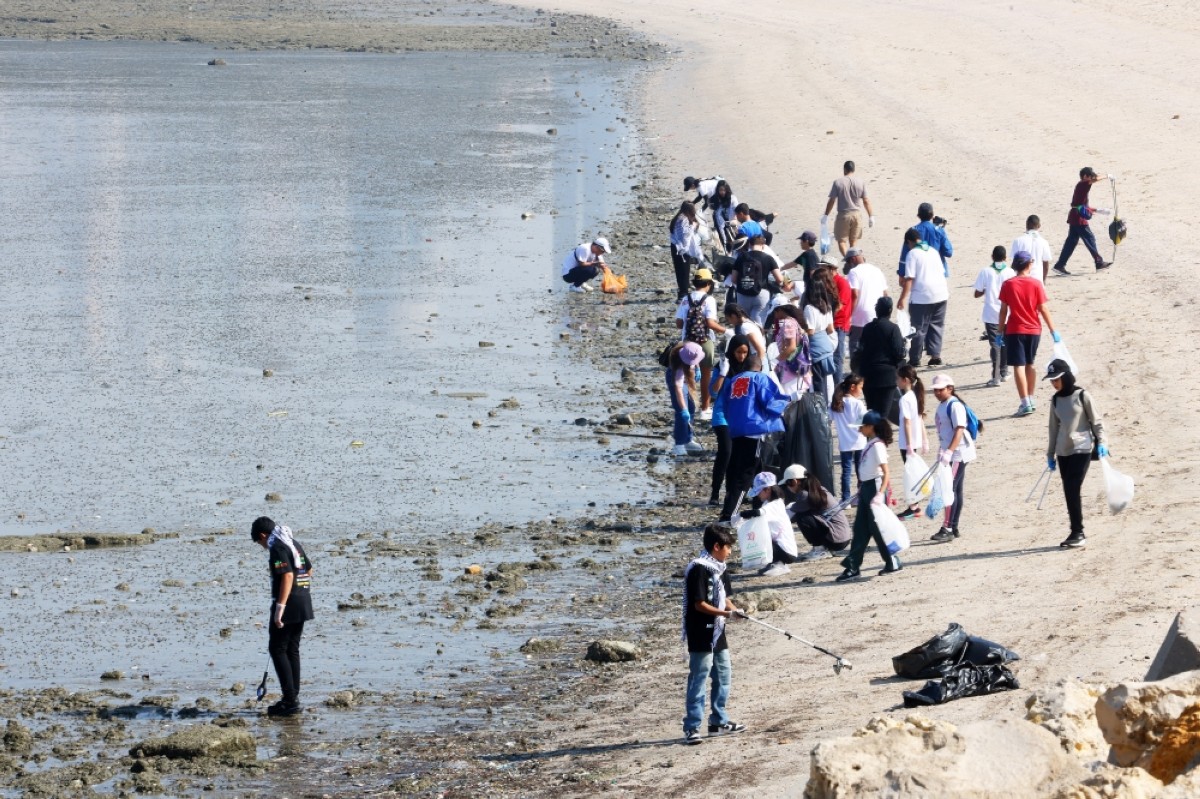KUWAIT: The Japanese Society in Kuwait organized a beach cleaning campaign "Operation Turtle” on Saturday at Shuwaikh Beach, in collaboration with the Kuwait Environment Protection Society, Environment Public Authority and the Japanese Embassy.
Japanese Ambassador to Kuwait Morino Yasunari emphasized the deep-rooted Kuwaiti-Japanese relations and the strong bilateral cooperation in various areas, particularly environmental initiatives. He highlighted the clear commitment to this partnership, demonstrated by the annual participation in the Shuwaikh beach cleaning campaign. Notably, the engagement of young people in this initiative underscores the enduring commitment to environmental conservation, reflecting the shared values and cooperation between the two countries.
"The participation in this campaign has steadily increased, a testament to the growing environmental awareness within Kuwaiti society across all age groups, especially among the youth,” the ambassador said. "This awareness campaign is dedicated to preserving Kuwait’s coastal and marine environment, focusing on safeguarding marine life, waste reduction and fostering a clean and healthy environment. It underscores the shared societal and global responsibility for environmental protection, making it a collective effort to ensure a sustainable and cleaner world for future generations,” he added.






Jenan Behzad, General Secretary of Kuwait Environment Protection Society, noted the organization is one of the founders of the annual Shuwaikh beach clean-up campaign. She pointed out the number of Kuwaiti volunteers has been increasing year after year, spreading the message about the importance of preserving environmental resources to a wider audience.
Behzad stressed the need to protect the Kuwait Bay area and the southern coastal regions due to their significance in providing food for sea turtles. "The female turtle lays approximately 150 eggs every time, but even under natural conditions, only one or two out of 1,000 eggs survive,” she said. She highlighted the challenges sea turtles face, including human interference, predation by creatures like crabs and fish, habitat loss due to beachfront developments, entanglement in fishing nets and various forms of pollution in their marine and coastal habitats.
Behzad also mentioned the presence of four species of sea turtles around the shores of Kuwait, which are at risk of extinction: The green turtle, the loggerhead sea turtle, the leatherback turtle and the hawksbill turtle. She emphasized the critical role of a balanced marine environment in providing safe food sources for turtles and ensuring their survival.
Furthermore, she explained the importance of tracking sea turtles to protect them effectively. Sea turtles live and feed in one location and travel thousands of miles to reproduce and lay their eggs. The only way to track them in the open seas is by attaching a transmitter to their backs to monitor their movements and receive signals indicating their location, thereby helping to reduce the threats they face.
Engineer Maali Al-Oqab, Director of Public Relations at the Kuwaiti Society for Environmental Protection, added that their participation in this year’s event was linked to expressing Kuwaiti support for the people in occupied Palestine, particularly the Gaza Strip, which is experiencing the ugliest manifestations of abuse and genocide.
In this context, the Friends of the Environment team decided to wear T-shirts featuring the turtle, the symbol of the event, decorated with the map of Palestine. They also wore the Palestinian keffiyeh as a symbol of solidarity and pride, conveying a humanitarian message that Kuwait stands in solidarity with and supports the people in the occupied Palestinian territories.
This campaign, initiated in 2000, aims to restore the Kuwaiti beach environment, allowing sea turtles to return, and raise awareness of the importance of environmental protection.

